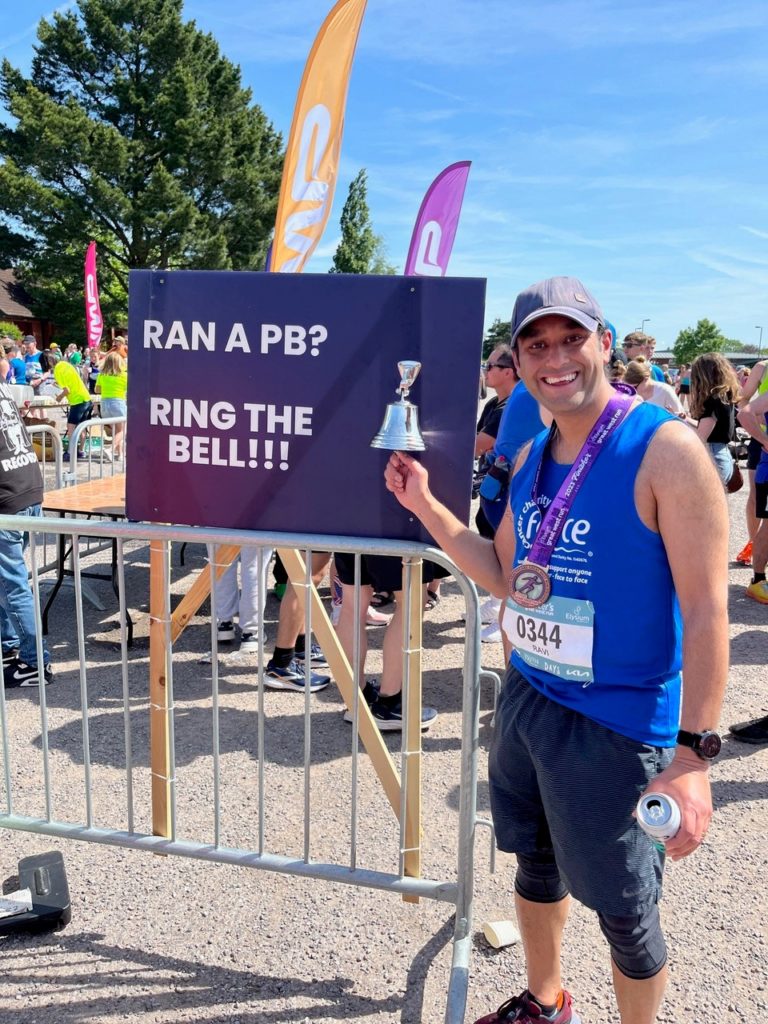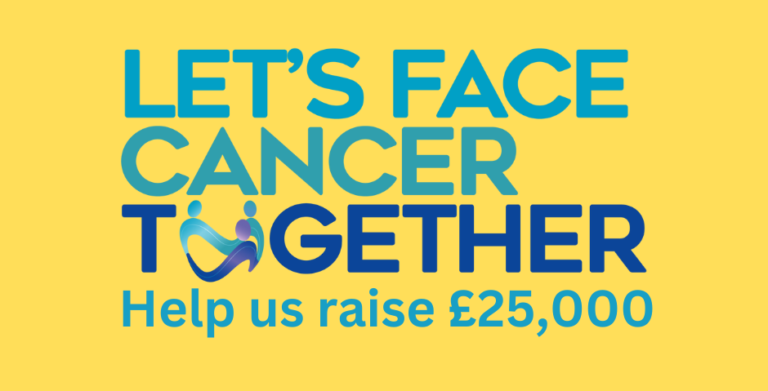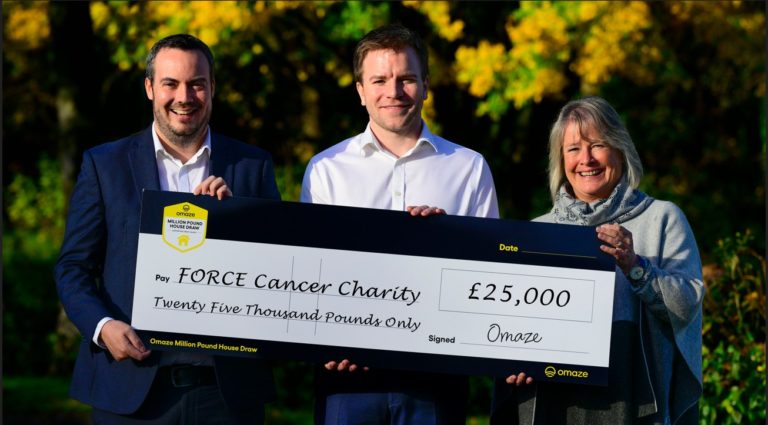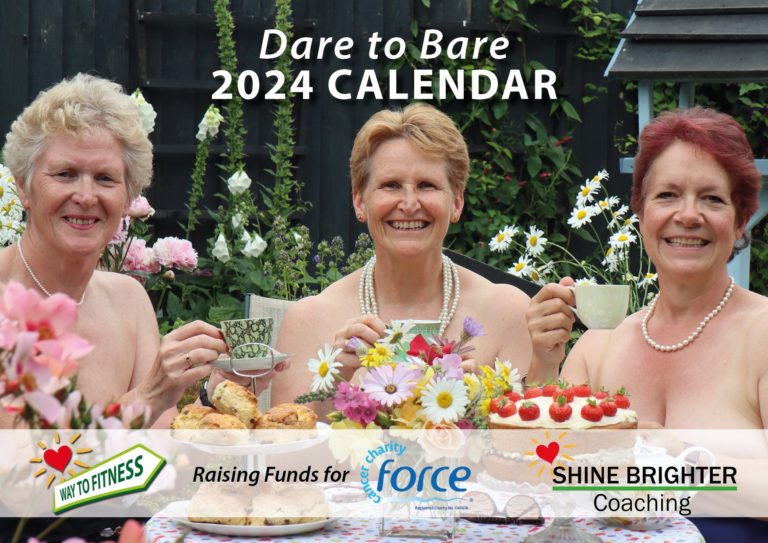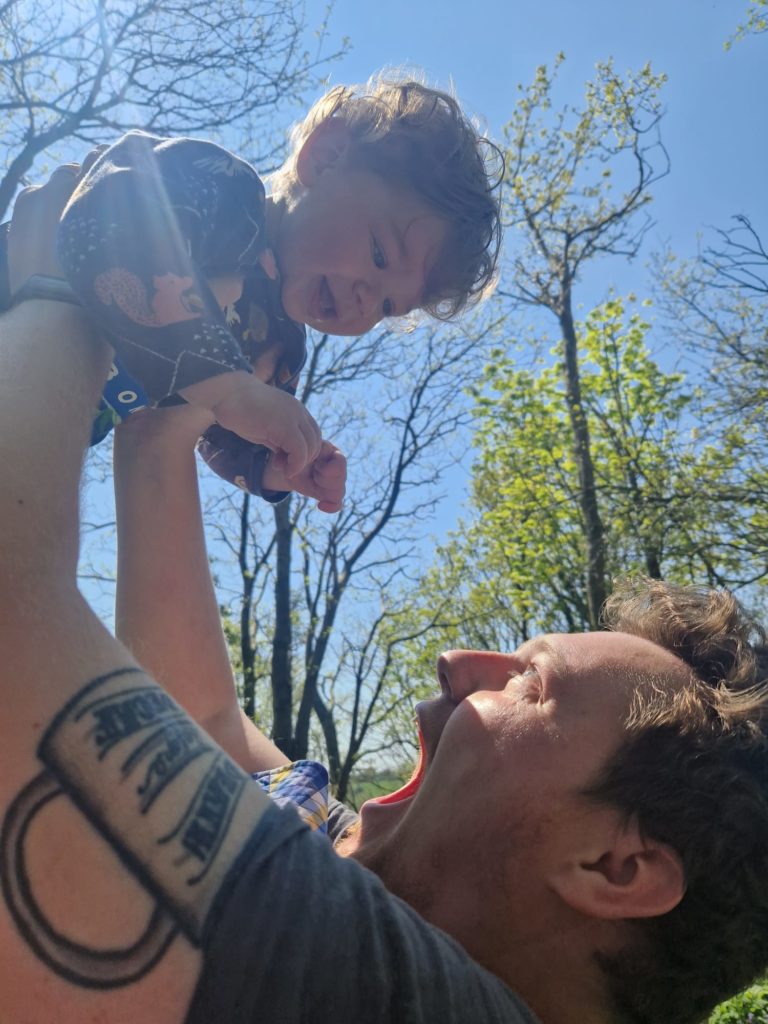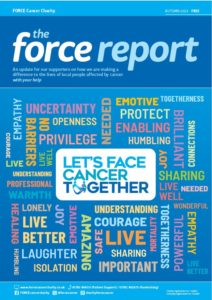Couples and cancer

In the context of a life changing illness, differing emotional responses are not unusual, in fact it can often be one of the first hurdles a couple faces in their relationship as they begin to navigate not only the cancer and treatment but their different approaches to managing it.
When someone is diagnosed with cancer a couple’s life is abruptly taken down an unimagined path, disrupting plans, work commitments, family life, intimacy and roles within the family unit.
There is often an unconscious expectation that your responses match each other’s, that you pull together to manage the shock that has invaded your world.
A diagnosis of cancer can be a time when people look to their partner for support but, paradoxically they may actually feel further apart, often leading to a sense of isolation and frustration on both sides. At best this is confusing and at worst it can be damaging to the relationship.
It can be disconcerting if each other’s responses to a cancer diagnosis are completely different (both the patient and the supporter) and can compound the emotional impact further. If support is sought early, some simple reflective and exploratory work can be helpful.
What can determine our responses to illness?
It can be useful to reflect on your family background (with curiosity, as opposed to blame).
What was the general culture within your family? Was there an unspoken/spoken family motto? For example, “Life is for living” or, “You have to push through the tough times”?
Did you come from a large family where your emotional needs weren’t met? Perhaps it was easier to withdraw quietly and manage your distress by yourself, protecting those close to you in the process.
Were siblings or parents argumentative, provoking a mediation role in yourself by way of coping? Or was there a “roses round the door, or “babes in the wood” culture where adversity simply wasn’t discussed?
What did it mean to be ill in the context of family life?
Ask yourself:
- Was it okay to be ill? Were you sent to school even when you were unwell? Who was there for you?
- Were family members irritable, anxious or even aggressive when someone became ill?
- What were your role models like; Did your parents/guardians look out for each other if they were ill? Did they continue to go to work or look after the household despite their suffering?
- Did someone close to you have a serious illness when you were young? And if so, did they survive?
- Did you take on a caring role yourself during these formative years?
Let’s look at how previous messages around illness can impact our coping styles now.
- When illness was ignored or minimised:
If, when reflecting on these questions you conclude that it “wasn’t okay” to be ill, that there was no one to look out for you when you were suffering, or you witnessed parents/guardians shouldering normal duties during sickness, then you may have found your own way of coping.
You might have decided at an unconscious level, not to seek support, perhaps it didn’t feel safe to express any needs, with an awareness at some level, that they wouldn’t be met.
Perhaps you were the child that rocked up to school with a fever and soldiered on, construing that it would be considered “weak” to show that you were struggling. If challenged by a well-meaning teacher, a survival strategy /defence, of defiance or withdrawal may well have been your response, much easier than showing “weakness” by expressing any needs.
Now, as an adult there may be a perceived (often unconscious) risk to expressing vulnerability. You may find it difficult to lean into or even notice any emotions around yours or your partners illness and even harder to express or name feelings that arise.
Your learnt survival strategy shows up, as you cope in the only way you know how, by shutting down or ignoring emotions of fear and distress and moving into the practicalities of managing.
Outwardly, there may be a need for control, a level of frustration with the pressure to “keep the lid” on your emotions. You may protect your partner from your feelings for fear of upsetting them or not know how to reach out or even, if to reach out to them.
- When those who were ill were openly supported:
Conversely, if there was considerable concern around illness in the family, perhaps there was a sense of protection when you were ill, a special time with a parent, extra treats, or time off school. You may have witnessed relational support between family members which can inform present life expectations, (to be supported).
If you were cocooned as a child when you were ill, you may be unconsciously expecting a similar level of attention now, with an intrinsic need to offer that support to your partner.
- When someone in the family had a chronic illness:
For others, illness may have pervaded their lives during early years with a sick parent or sibling. How the illness was managed will undoubtedly leave its imprint on those in the family. For example, minimal communication under the guise of “protection” often leaves a child formulating their own fantasies.
As an adult this can translate into a lack of trust in others or a need for copious amounts of information amongst other things. Alternatively, you may have been the caregiver, requiring that you grow up prematurely.
Barriers to communication
The idea of voicing individual needs to a partner can sometimes bring up reminders of past circumstances and trigger survival strategies. If your partner’s experience was very different to yours, their way of coping is unlikely to match, leading to potential conflict.
It can look something like this:
Adam
- Situation: Diagnosed with cancer
- Family messages/beliefs: “It is not okay to be ill”; “be strong and rise above it, if you don’t, you will be considered weak”.
- Family of origin: High achievers, emotions are suppressed and communication is lacking.
- Vulnerabilities: Fear, distress, unworthy
- Survival strategy: Control, frustration, withdrawal
Jill (Adam’s partner)
- Situation: Partner, Adam diagnosed with cancer
- Family messages/beliefs: “It is okay to be ill and to seek support”. “It is okay to take care of yourself”.
- Family of origin: Loving and supportive with an instinct to take care of each other when illness strikes.
- Vulnerabilities: Feels rejected, abandoned and hurt
- Survival strategy: To pursue and ask for explanations/information.
Jill is distressed at Adam’s diagnosis and wishes for them to support each other (with a belief system that it’s “okay” to have needs when you’re ill). She is confused and hurt by his response of frustration and withdrawal.
With a perceived sense of rejection, Jill has difficulty showing this hurt and instead, defends with her own frustration and questions (secondary emotion/survival strategy).
Adam may then withdraw (survival strategy), leaving Jill feeling increasingly isolated and rejected but unable to express this, instead, pursuing him with demands to “talk about their experience”, which results in him shutting down even more, for fear of upsetting Jill further. It can all begin to feel a bit confusing.
As we can see, a cycle/loop of poor communication is set up that creates a barrier at a time when they most need each other.
Seeking support
Counselling can help towards raising awareness of this cycle. Once Adam is able to express his primary emotion of fear from a place of vulnerability, Jill is more likely to respond with compassion as opposed to frustration, as she discloses her deeper sense of feeling hurt by his initial response, (a new cycle of communication).
As trust builds, they can begin to re-connect and find a way to support each that feels comfortable for both. Some might even consider naming the loop (i.e., “our cancer saga” or “grumpy cycle”) or think of it like a dance where the couple work together to change the steps.
Here at FORCE, our counsellors can help you to work through these processes, encouraging consideration that it is the cycle that is the issue, not the relationship. Renewed insight around each person’s previous experiences of illness really helps towards de-escalating a situation and reducing blame between a couple.
If this article has affected you and you think you could benefit from support then please contact FORCE on 01392 406151 or email support@forcecancercharity.co.uk
Stella King, Oncology Support specialist at FORCE


